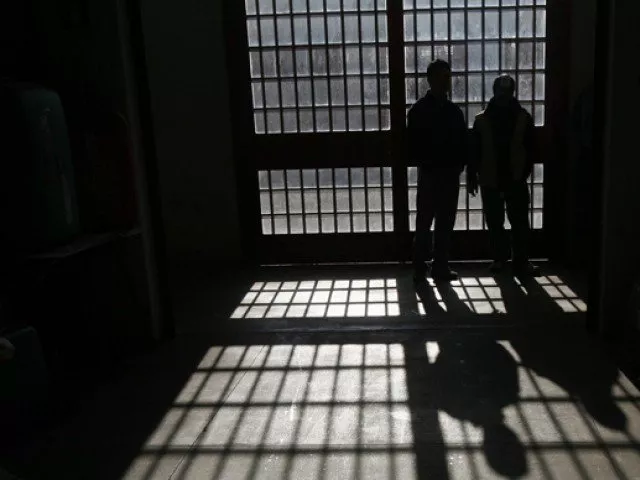Lawyer bodies stand by IHC decision on UTPs
Express serious concern over prompt fixing of plea against release of prisoners from Adiala
ISLAMABAD: The legal community has expressed serious concern over “prompt fixing” of a petition against the Islamabad High Court’s (IHC) last week order to release 408 under trial prisoners (UTPs) from Rawalpindi’s Adiala Jail in the wake of novel coronavirus outbreak.A five-judge larger bench headed by Chief Justice of Pakistan Gulzar Ahmed is going to take up on Monday the petition seeking suspension of the IHC order for release of the UTPs.
The IHC on March 21 ordered release of the UTPs detained in Adiala jail in minor crimes and directed the Islamabad police not to make arrest in petty matters. IHC Chief Justice Athar Minallah issued the order while taking up a petition based on a report of the IHC judicial branch on Islamabad-based UTPs.
A lawyer, Raja Muhammad Nadeem, however, moved the apex court against the order on Friday. Interestingly, soon after submission of the petition, CJ Gulzar Ahmed formed a five-judge larger bench – headed by him – to hear the plea on March 30 (Monday).
The legal fraternity, however, took exception to “prompt fixing” of the petition and the Pakistan Bar Council (PBC) and the Supreme Court Bar Association (SCBA) issued a joint statement fully appreciating and supporting the IHC order.
The statement said the IHC order was passed in peculiar circumstances in the wake of the outbreak of deadly COVID- 19, “just on humanitarian and compassionate grounds only in cases of the UTPs.
It expressed the hope that the other superior courts “may also take/pass similar decisions/orders on humanitarian grounds that being the demand of the grave situation confronting Pakistan.”
It said the rapid spread of coronavirus the world over and in Pakistan needs concerted efforts and practical contributions on war footing by all concerned including the courts, to combat the disease.
"Both elected heads of both the apex bar bodies, therefore, have expressed their earnest hope that the SC … will kindly keep in view the hardships of and threats of COVID-19 to UTPs in overcrowded jails…and its decision… will promote the object of protection of human rights especially of the UTP,” it said.
PBC Vice Chairman Abid Saqi and SCBA President Qalb-i-Hassan have also announced to personally appear before the larger bench. They will strongly oppose the petition against the IHC order.
PPP Senator Mustafa Nawaz Khokhar, who is also chairman of the Senate Standing Committee on Human Rights, said it is heartening to see the IHC set an example for others to follow."
“Humanity is facing an unprecedented crisis which needs compassionate responses from each one of us. The relief for UTPS is also in line with developing jurisprudence, where it is increasingly being acknowledged that a person without conviction should not be made to go through hardship.
“Upon acquittal an injustice [to a UTP] cannot be undone. It’s a pity that the parliament so far has not responded with necessary reforms to this end,” Khokhar added.
An active lawyer Umer Gilani said the first issue which will have to be examined is that of locus standi of the petition filed against the IHC order.
"In criminal proceedings, there are only three parties which have standing: the complainant, the accused and the prosecution. A third party, such as a public interest petitioner, does not have standing. This is a well-established rule of our criminal law, which is different from the law of writs," Gilani said.
He said this issue came under discussion before the Supreme Court of Pakistan in Shahrukh Jatoi's case.
“A public interest petitioner filed an appeal against acquittal of the accused, which the complainant did not. The bench observed that criminal appeal was not maintainable. Instead, it was converted into a constitutional petition and decided accordingly".
Gilani said a perusal of the prayer clause shows that this is a petition for leave to appeal in a criminal matter - even though reference has been made to 184(3), the court's constitutional jurisdiction. "Therefore, the first issue which will have to be examined is that of locus standi of petitioner,” he added.


COMMENTS
Comments are moderated and generally will be posted if they are on-topic and not abusive.
For more information, please see our Comments FAQ